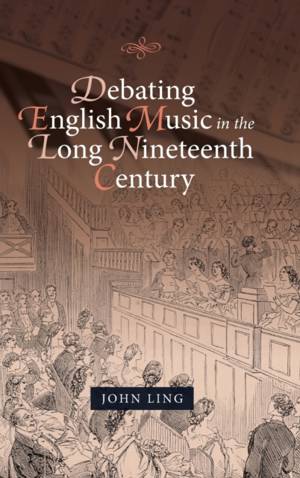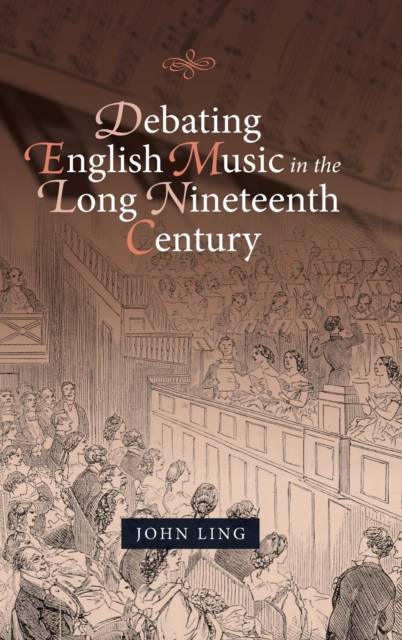
- Afhalen na 1 uur in een winkel met voorraad
- Gratis thuislevering in België vanaf € 30
- Ruim aanbod met 7 miljoen producten
- Afhalen na 1 uur in een winkel met voorraad
- Gratis thuislevering in België vanaf € 30
- Ruim aanbod met 7 miljoen producten
Zoeken
€ 177,45
+ 354 punten
Omschrijving
Situates the controversial narrative of 'The English Musical Renaissance' within its wider historical context. Throughout the nineteenth century a fierce debate about the future of English music was raging in Britain. Just as English music was appearing to advance in quality, the impact of Richard Wagner altered the course of the debate. Alarmed at the Wagnerian influence on English composers, critics expressed relief when that influence appeared to abate, and then presented English music as the antidote to Wagnerian decadence. However, the optimism that England was in a position to lead the musical world was short-lived and a new generation of critics found English composition - with the exception of Elgar - severely lacking. The book identifies themes such as materialism and nationalism that emerged during the debate. It also places the narrative of 'The English Musical Renaissance' within its rightful wider historical context.
Specificaties
Betrokkenen
- Auteur(s):
- Uitgeverij:
Inhoud
- Aantal bladzijden:
- 258
- Taal:
- Engels
Eigenschappen
- Productcode (EAN):
- 9781783276165
- Verschijningsdatum:
- 18/06/2021
- Uitvoering:
- Hardcover
- Formaat:
- Genaaid
- Afmetingen:
- 156 mm x 234 mm
- Gewicht:
- 535 g

Alleen bij Standaard Boekhandel
+ 354 punten op je klantenkaart van Standaard Boekhandel
Beoordelingen
We publiceren alleen reviews die voldoen aan de voorwaarden voor reviews. Bekijk onze voorwaarden voor reviews.








